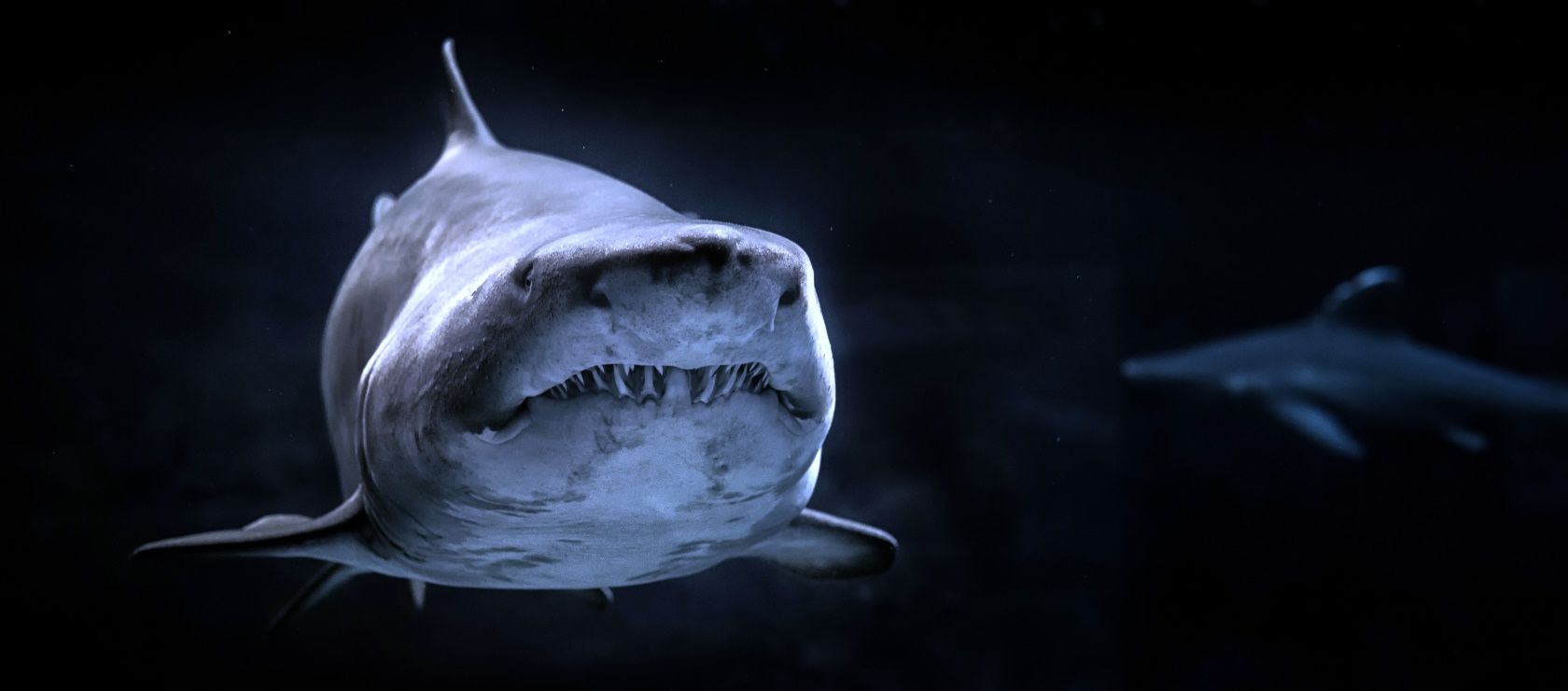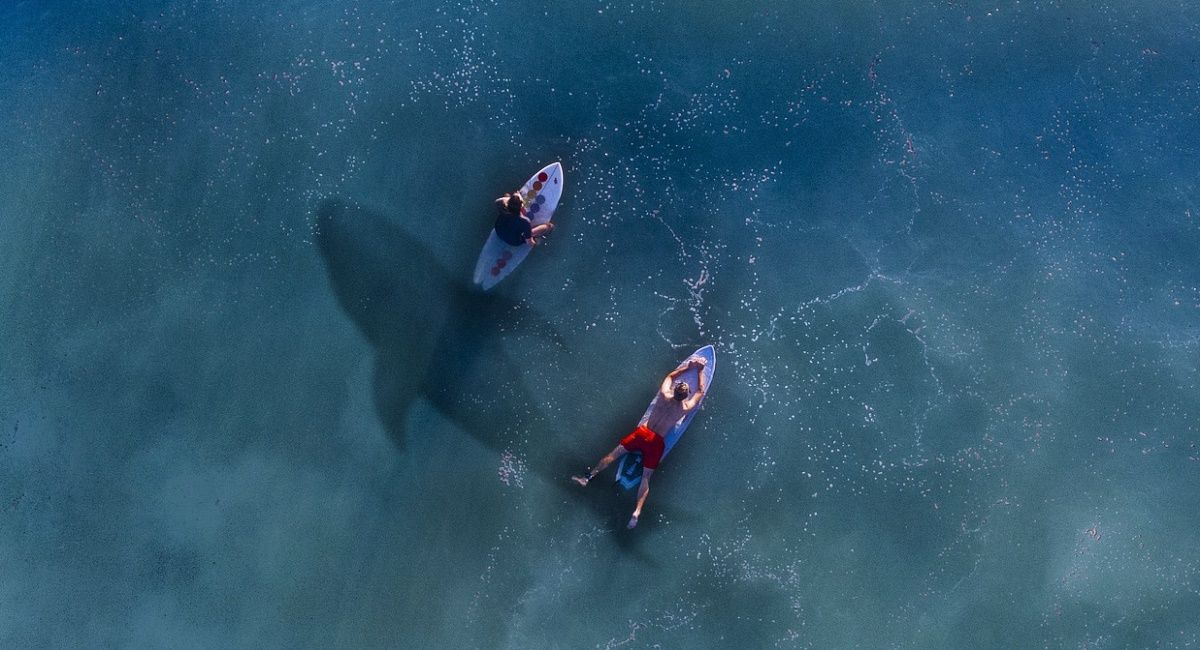Surprising as it may seem, sharks have made a splash in the world of cybersecurity by acquiring a taste for our underwater internet cables. It turns out we're not only coming to blows with cybercriminals on land but also with their sharp-toothed counterparts beneath the sea.
So, prepare yourself to ride a cyber wave with us as we look into the jaws-dropping adventures of unusual suspects tampering with our online connectivity. It’s not your typical internet cable sabotage but deep-sea shenanigans of the finned hacktivists we call sharks.
On a serious note, while these mighty marine creatures have a strange habit of chomping on underwater cables, they're a less serious threat to them than we are.
The Unlikely Connection Between Sharks and Cybersecurity
The underwater world is vast and swarming with life, and sharks, as the ocean's apex predators, command attention and awe. Unfortunately, their pursuit of prey leads them into unexpected encounters with fiber-optic cables that traverse the ocean floor.
The first solid evidence of sharks’ strange attraction to fiber-optic cables was found in 1985 when shark teeth were found embedded in an experimental data line off the Canary Islands. Later that year, shark bites caused the failure of four segments of cable in the Atlantic Ocean, leaving us to wonder about the reason for this bizarre behavior.
Another infamous case of sharks impacting digital communications occurred off the coast of Africa, where a series of internet outages left network engineers baffled. Upon careful investigation, sharks were found as unlikely culprits, and they chomped through undersea cables, leaving the whole area without access to the internet.
Only after several similar mind-boggling incidents, network engineers started to see the strange connection between sharks, loss of internet connectivity, and further cybersecurity concerns. The rise in such incidents would point out the vulnerability of our digital infrastructure, where even the most unpredictable factors can seriously compromise cybersecurity systems and open the door for cyberattacks and data breaches.
Why Is Internet Outage a Cybersecurity Risk?
Not only does a loss of internet connectivity cast a shadow over our digital lives, but it can also create a host of surprising cybersecurity risks. As soon as a shark attack sinks a region into digital darkness, this sudden blackout opens up a world of opportunities for cybercriminals to strike.
Businesses and organizations that heavily rely on the internet for their day-to-day operations are at the biggest risk. Without a stable connection, critical security systems can become inoperative, leaving them exposed to potential security breaches. Much like these opportunistic predators, cybercriminals thrive in the chaos and confusion caused by such incidents, taking advantage of weakened defenses to carry out attacks on businesses and individuals alike.
Moreover, the loss of internet connectivity can hinder communication and coordination among the security team, third-party security service providers, and even law enforcement, slowing down their response to cyber threats. Plus, without the internet, individuals whose sensitive data has been compromised in a breach might not be immediately informed about it, leaving them more susceptible to scams and phishing attempts.
On top of everything, the loss of internet access can create an environment of uncertainty and panic among users. Unable to confirm the authenticity of websites or emails, people may fall prey to malicious schemes and unwittingly share sensitive data with cybercriminals. Likewise, the lack of stable internet connectivity can create fertile ground for the spread of misinformation, which can further mislead its users.
In 2014, a viral video of a shark attack on Google's underwater cable make Google bite back by wrapping up its trans-Pacific cables with anti-shark steel armor (as per The Guardian). At the same time, environmentalists shared their concerns about how this undersea infrastructure could pose a threat to aquatic animals—after all, it’s not only about our security.
If you’re curious about how our attitudes towards the environment give rise to cyberattacks, you should look into the connection between climate change and cyber threats.
Why Do Sharks Have a Taste for Fiber Optic Cables?
Contrary to some shark flicks (yes, we’re looking at you, Jaws 2), sharks don’t eat the cables because cables are not part of a shark's diet. Being the curious creatures they are, sharks sometimes fall victim to their own predatory instincts when confronted with fiber optic cables. Their sensitive sensory organs, like electroreceptors and lateral lines, can confuse the electromagnetic signals emitted by these cables with those of their prey and get them to go for a bite. Unfortunately for us, these unexpected encounters can result in disruptions in internet connectivity.
Even with their impressive hunting skills, these mighty marine creatures can fall prey to the complexities of modern technology, showing us that the natural world and the digital world sometimes collide in surprising ways.
Why Do Internet Cables Go Under Ocean, Anyway?
Submarine communications cables crisscross the ocean bottom with the aim to connect the world and enable consistent global communication. This approach to connectivity offers more control and is a more secure route to data communication between continents. Unlike their satellite-based counterparts, which fall victim to latency and signal interference, undersea cables provide superior data speeds and lower latency which makes them a perfect candidate for this task.
While the idea to lay internet cables under the sea might seem peculiar at first, it’s pretty practical from a technical point of view. Deep beneath the sea, cables are shielded from terrestrial threats such as land-based conflicts, construction site accidents, and most extreme weather events. What’s more, the sheer size of the ocean itself makes unobstructed cable routes possible and reduces the risk of destructive human activities. Buried deep beneath the ocean floor or lined with long-lasting armoring, these cables are able to endure external forces and ensure a stable internet connection.
However, the submarine communications cables approach comes with a couple of challenges, including close encounters with marine life—well, mostly sharks.
Should We Worry About Shark-Proofing the Internet Infrastructure?
Since traversing the turbulent waters of shark-infested territory can be tricky, the question emerges, are we doing enough to shark-proof the internet infrastructure? Given the greatness of the ocean and the population of these apex predators lurking within, this task is far from a simple one. Still, resourceful researchers and tech-savvy engineers are sinking their teeth into this challenge, exploring techniques to safeguard the undersea cables without causing harm to the marine ecosystem.
After reinforcing its undersea cables with Kevlar-like coating to counter damaging shark bites, Google has seen fewer such incidents since. However, while cable-chomping sharks make for a better story, they aren’t the main culprit for the majority of cable malfunctions.
According to the International Cable Protection Committee (ICPC), most cable faults can be attributed to human activity, whether caused by ship anchors or fishing trawlers that accidentally catch undersea cables. So, in addition to being the weakest link in the cybersecurity chain, we’re also a bigger danger to cables than natural disasters (such as earthquakes, waterspouts, submarine landslides, and strong tidal currents) and sharks combined.
At the end of the day, while we should worry about strengthening the internet infrastructure, shark-proofing is only a small part of the problem. We’re playing a bigger part in this than the big fish with a bad reputation and the pursuit of harmony between man-made networks and nature is another of our responsibilities.
We’re Gonna Need Bigger Cables
In the colossal ocean of cybersecurity, even a small shark can make a big splash. Safeguarding our internet cables from these underwater wonders calls for out-of-the-box thinking and some seriously large cables. But fear not, while sharks may bite, we've got the megabyte to keep them at bay.






